Stay in the know
All our latest podcasts delivered right to your inbox.
Are you wondering if your ADHD symptoms are too mild to get tested? Or if there’s enough of a benefit to getting diagnosed with ADHD as an adult? Host Dr. Roberto Olivardia shares his own diagnosis story as he answers common questions about whether to get formally tested for ADHD as an adult:
Should I get tested for ADHD? [00:48]
Can I diagnose myself with ADHD? [03:44]
What else do I need to know if I think I might have ADHD? [05:17]
Key takeaway, next episode, and credits [08:41]
Related resources
Episode transcript
You’re listening to Season 2 of Understood Explains: ADHD Diagnosis in Adults.
Today’s episode answers the question “Should I get tested for ADHD?”
My name is Dr. Roberto Olivardia, and I’m a clinical psychologist with more than 20 years of experience evaluating people for things like ADHD. I’m also one of the millions of people who have been diagnosed with ADHD as an adult. I’ll be your host.
My goal here is to answer the most common questions about ADHD diagnosis. Along the way, you’ll learn a lot about ADHD in general.
We’re going to do this quickly — in the next 10 or so minutes. So, let’s get to it.
Should I get tested for ADHD? [00:48]
You might be wondering if you have enough symptoms, or if there’s enough of a benefit, to go and get a formal diagnosis as an adult.
To answer this question of “Should you get tested,” I’m going to make two predictions about you, based on the fact that you’re listening to a podcast about diagnosing ADHD in adults. I predict that, number 1, you’re an adult, and number 2, that you made it through childhood without being diagnosed with ADHD.
And if I’m right, then you and I probably have a lot in common. I made it through many years of school without an ADHD diagnosis.
I was 35 when I was diagnosed with ADHD. Up until then, I had been doing sort of OK, finding ways to cope with certain challenges and trying to avoid everything else that was hard for me. So I could have kept doing those things and still be a fairly successful adult. But I am so glad I got diagnosed, and here are four reasons why:
First, soooooo many things make sense now about my childhood.
Everything from my numerous sleep problems, like the massive effort it took me to shut my mind off at the end of the day, to the immense energy it took me to stay awake in Mr. Burke’s history class my junior year of high school.
Second, my ADHD diagnosis has helped me understand what kinds of things I need to thrive at work.
My favorite quick example here is fluorescent lighting. I finally understand why it drives me crazy and that if I’m going to get any work done, it needs to be in a room with soft, warm lighting.
People like me who have ADHD are very sensitive by nature, and too much or too little sensory input can make it harder to be in the present moment and stay focused.
Third, I understand now how my ADHD can affect my relationships.
As someone who gets bored easily and seeks out stimulation, I was always attracted to novelty, drama, taking risks…
Sometimes that opened me up to risks that worked out really well, hanging out with many of my friends who also had ADHD. Other times, that didn’t work out so well, because we didn’t always make the best decisions.
And last but not least, I understand how ADHD affects my impulse control.
Because of my ADHD, I know that if I like something, I run the risk of liking it too much. The idea of eating until satisfied versus eating until I’m stuffed, saying no to buying something I really couldn’t afford, or restraining myself from some mischievous desire were just some things I had to work on throughout my life, even today.
There’s lots of research that shows people with ADHD have a significantly higher risk for addictive behaviors. And it’s essential for us to know this about ourselves.
So, listeners, I can tell you from my personal experience that getting diagnosed with ADHD as an adult not only helped me understand myself better. It helped me start figuring out what kinds of supports I need to thrive in all aspects of my life.
Can I diagnose myself with ADHD? [03:44]
So this is a very common question, and the answer is a hard no. Self-diagnosis may be popular on TikTok and other social media platforms. But it’s not a good idea, and here are three reasons why:
Reason number 1: There are a lot of conditions that can look a lot like ADHD. A quick online quiz won’t be able to tell you if you’re struggling to pay attention because you have ADHD, or if it’s something else. Stress or depression or anxiety or even sleep apnea can look a lot like ADHD, and an online platform won’t be able to pick apart the differences like a professional would, especially if you’re only being asked a few questions.
Reason number 2: ADHD is a matter of degree. Everyone gets distracted sometimes. But that doesn’t mean everyone has ADHD. Diagnosing ADHD involves looking at how often you have certain symptoms and how much those symptoms affect your daily life.
Reason number 3: Self-diagnosis can lead to the wrong DIY treatments — or to no treatments at all. And the whole reason you’re wondering about ADHD diagnosis is so you can help yourself feel better and function better, right?
So for all of these reasons, it’s much, much better for you to work with someone who has a lot of training on how to accurately diagnose ADHD. A quick quiz can be useful as a starting point, but please don’t let it be a stopping point. Get tested by a professional.
What else do I need to know if I think I might have ADHD? [05:17]
This season of Understood Explains is going to cover a lot of territory, everything from which kinds of professionals can diagnose you, to how to prepare yourself emotionally for an ADHD diagnosis, to how to treat ADHD with or without medication. Each of these topics gets their own episode. But before we wrap up this one, there are a few big-picture things that I think are important for you to keep in mind as you’re thinking about getting tested for ADHD:
The name “ADHD” is kind of misleading.
ADHD’s full name, “attention-deficit hyperactivity disorder,” often confuses people in a couple different ways.
“Attention deficit” doesn’t mean that people with ADHD lack attention. It means we have trouble regulating our attention. Our brains are often trying to pay attention to too many things. We have trouble filtering out the unimportant stuff, so we get distracted by things like background noise. We can also focus too much on one thing and can’t shift our attention away from it. Hyperfocus can be a big challenge for people like me with ADHD.
“Hyperactivity” is another confusing part of ADHD’s formal name. There are three types of ADHD, and two of them involve hyperactivity. But you don’t have to be hyperactive to be diagnosed with ADHD. You can just struggle with attention. What used to be called “attention-deficit disorder” or ADD, is now called the “inattentive type” of ADHD. So that can be confusing to a lot of folks, too.
There are two other terms that are important to know as you’re thinking about ADHD: “impulse control” and “executive function.”
“Impulse control” isn’t part of ADHD’s formal name, but it’s one of the three main symptoms of ADHD: trouble with attention, hyperactivity, and impulse control. Those are the three main symptoms.
“Executive function” is another really important term in the world of ADHD. Executive functions include everything from our ability to manage time and make decisions, to how we plan and prioritize, to how we physically organize our stuff. It involves how we remember information, how we regulate emotions. Many people — and many women in particular — are surprised by how much ADHD can impact emotions, whether it’s trouble managing our feelings, or the shame we feel about clutter, being late, etc. But all of these things are executive functions. And this is probably the biggest piece of the ADHD puzzle that can really have a significant impact on undiagnosed adults.
It’s really only been since the mid 1990s that people started talking about the idea of ADHD in adulthood. And a lot of folks might not know what it looks like in adults and how it can be connected to other issues they might be experiencing, like a binge-eating disorder or a gambling addiction or porn addiction.
The good news is that if you do get formally diagnosed with ADHD, the diagnosis report will often include recommendations on how to help with addiction and risk-taking, as well as other challenges like organization. There are lots of inexpensive apps and tools — like setting a timer on your phone — but it helps to know which areas you’re struggling in so you can start focusing on how to help.
Key takeaway, next episode, and credits [08:41]
OK, listeners, that’s it for Episode 1. The key takeaway I’m hoping sticks with you from this episode is that if you suspect you may have ADHD, meet with a health care professional who knows a lot about ADHD and can do a clinical evaluation. We’re going to spend the whole next episode talking about what kinds of health care providers can diagnose ADHD in adults. But for now, I want you to focus on why it’s a good idea to do this.
I’ve found the majority of people are actually relieved and feel a strong sense of validation when they get diagnosed with ADHD. A diagnosis isn’t meant to make you feel bad. In fact, it’s the opposite.
When I was officially diagnosed, I immediately started connecting dots and realized behaviors that may have seemed confusing or “out there” suddenly made more sense. And if you don’t have ADHD, but some other diagnosis, that will be just as important.
Remember: Knowledge is power!
Now that we’ve covered why you might want to get evaluated for ADHD, you’re ready for the rest of the season. Thanks for listening, and I hope you’ll join me for Episode 2, which explains “Who can diagnose adults with ADHD?”
You’ve been listening to Season 2 of Understood Explains from the Understood Podcast Network. If you want to learn more about the topics we covered today, check out the show notes for this episode. We include more resources, as well as links to anything we’ve mentioned in the episode.
One important note: I don’t prescribe ADHD medication and I don’t have any affiliation with pharmaceutical companies — and neither does Understood. This podcast is intended solely for informational purposes and is not a substitute for a professional diagnosis or for medical advice or treatment. Talk with your health care provider before making any medical decisions.
Understood Explains is produced by Julie Rawe and Cody Nelson, who also edited the show. Briana Berry is our production director. Our theme music was written by Justin D. Wright, who also mixes the show.
For the Understood Podcast Network, Laura Key is our editorial director, Scott Cocchiere is our creative director, and Seth Melnick is our executive producer.
Understood is a nonprofit organization dedicated to helping people who learn and think differently discover their potential and thrive. Learn more at understood.org/mission.
Host
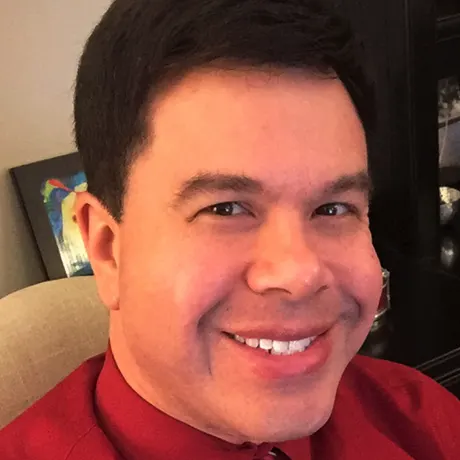
Roberto Olivardia, PhD
is an expert in the treatment of ADHD, obsessive-compulsive disorder, and body dysmorphic disorder. He also focuses on issues facing students with learning disabilities.
Latest episodes

March 22, 2023
Listen to the trailer for Season 2 of “Understood Explains,” which explains ADHD diagnosis in adults — from getting tested to finding support.

March 29, 2023
Find out which types of health care providers can diagnose ADHD in adults — if it’s worth the wait to see a certain kind of specialist.

March 29, 2023
Find out how doctors test adults for ADHD. What kind of questions do they ask? How long does it take? Know what to expect in a thorough evaluation.
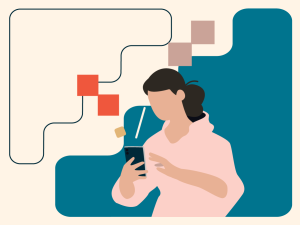
March 29, 2023
The wait time may be shorter, but is online diagnosis accurate? And can it help you get ADHD treatment? Learn the pros and cons of online testing.
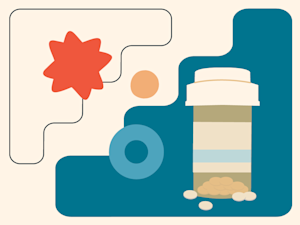
March 29, 2023
How does ADHD medication work? Is it addictive? Get answers to common questions, like how to tell if you’re taking too much or too little.

March 29, 2023
There are many ways to treat ADHD without medication or in addition to medication. Learn about options ranging from behavior therapy to free apps.
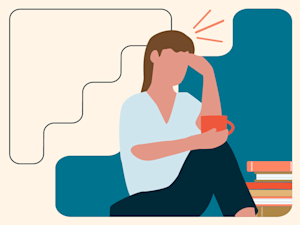
March 29, 2023
Relief. Anger. Grief. Learn about common reactions to getting diagnosed with ADHD and how to process these feelings so you can keep moving forward.
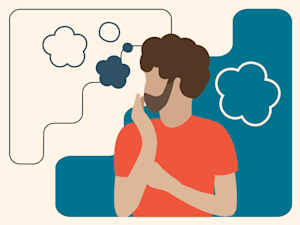
March 29, 2023
Doubting the accuracy of your ADHD diagnosis? Find out how to tell if you got a thorough evaluation and if you might need a second opinion.

March 29, 2023
Listen to personal stories about adult ADHD diagnosis. Find out what led each person to get diagnosed and what they wish they’d known sooner.
